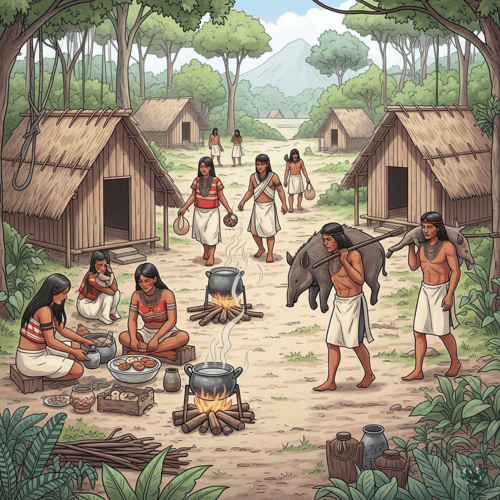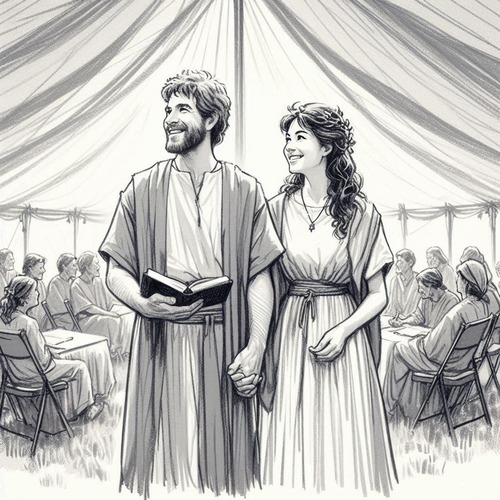Differences between Mormonism and Christianity: Core Doctrinal Divide
Mormonism and Christianity: Core Doctrinal Divide
Among religious beliefs, Mormonism and Christianity stand as two distinct threads, interwoven yet fundamentally different in their core tenets. This article delves into the core distinctions between the two belief systems, illuminating their unique perspectives on the nature of God, sacred texts, the path to salvation, and the essence of humanity.
Contrasting Conceptions of God: Christians affirm faith in a singular, omnipotent, and self-sufficient God, who is revered as the creator and sustainer of the universe. This supreme deity is celebrated in the complex doctrine of the Trinity, which presents God as three distinct yet indivisible entities: Father, Son, and Holy Spirit.
Mormonism, on the other hand, embraces a dynamic view of divinity rooted in the concept of “eternal progression.” This doctrine suggests God himself underwent a transformative journey from mortality to divinity, paving the way for humans to ascend to divinity by adhering to prescribed commandments and ceremonies.
Divergent Notions on Who Jesus is: Christians revere Jesus Christ as the embodiment of God Himself, the second person of the Trinity, and wholly divine in nature.
Mormonism perceives Jesus as a separate divine entity from God the Father, akin to a spiritual sibling to humanity. They regard him as a created being who achieved divinity through progression, setting a precedent for human ascension to godhood.
Disparate Views on Sacred Texts: For Christians, the Bible is the immutable word of God, comprising the Old and New Testaments. It serves as the ultimate authority on doctrine and practice, guiding believers on their spiritual journey.
Mormons, while revering the Bible, also elevate the Book of Mormon to an equal status. This text, purportedly translated from ancient golden plates, is heralded as an additional testament of Jesus Christ, chronicling his interactions in the ancient Americas and reinforcing biblical teachings.
Dissimilar Doctrines on The Path to Salvation: Christians affirm salvation as a divine gift attainable through faith in Jesus Christ’s redemptive sacrifice on the cross. This grace is accessed through repentance and belief in the transformative power of Christ’s death and resurrection.
Mormonism, however, advocates a structured approach to salvation, emphasizing not only faith and repentance but also adherence to specific rites and ceremonies. According to Mormon teachings, salvation is a journey marked by obedience to prescribed commandments, with the most devout believers attaining the highest celestial glory and potential deification.
Conflicting Views on Humanity’s Essence: Christians believe all human beings are created in the image of God, and endowed with intrinsic value and honour. Although marred by sin, redemption and restoration are attainable through Christ’s sacrifice.
Mormonism introduces the concept of a pre-mortal existence, viewing humans as the literal spiritual offspring of God. This pre-earthly life is believed to influence one’s mortal journey and eventual potential for exaltation.
Bridging the Theological Divide: While Mormonism and Christianity share some superficial similarities and interwoven historical roots, a deeper examination reveals fundamental incompatibility between the two faiths on issues of paramount theological importance. The stark divergence in notions on the nature of God, the being and role of Jesus Christ, the authoritative sources of divine revelation, the means of attaining salvation, and the essence of human nature are not mere peripheral. These core variances strike at the heart of the two faiths’ belief systems, rendering them irreconcilable.
While recognizing the irreconcilable theological differences, Bible-believing Christians must approach Mormons with compassion, wisdom, and a heart to share the uncompromised gospel truths that can truly set us free (John 8:32). Engaging Mormon friends, family, and neighbours with gentle respect, while lovingly and clearly articulating the Bible’s teachings, provides an opportunity to reveal the incomparable beauty of pure biblical faith.
Related Reads
Editor's Pick

Sacred Sorrow: Why Jesus Calls Mourning a Blessing
MAKING SENSE OF THE DIVINE PARADOX IN MATTHEW 5:4 When Jesus declared, “Blessed are those who mourn, for they will [...]

‘Sell Everything You Have…’: Are We To Do So Literally?
When Jesus encountered the rich young ruler in Matthew 19:21, His words cut through with startling clarity: “If you want [...]

Why Jesus Said ‘It’s Better I Go Away’…
THE SUPERIOR GIFT OF THE HOLY SPIRIT “Nevertheless, I tell you the truth: it is to your advantage that I [...]

What About Those Who’ve Never Heard the Gospel?…
WILL GOD SHOW THEM MERCY ON JUDGEMENT DAY? Few questions tug at the Christian’s heart like this one. Picture the [...]

Cities of Refuge: Foreshadowing Our Safe Haven in Jesus
Picture this: A man is chopping wood with his neighbour when the axe head flies off the handle, striking and [...]

Testament to Design: The Engineering Marvel of Elephants
Picture an African elephant delicately plucking a single acacia leaf with the tip of its trunk, then moments later using [...]

Blue Whales: Mammoth Icons of Intelligent Design
Imagine an animal so massive its heart alone weighs as much as a small car, yet so precisely engineered it [...]

Do Unbelieving Kids Disqualify Church Leaders?
REFORMED PERSPECTIVES ON 1 TIMOTHY 3 AND ELDER QUALIFICATIONS Every pastor knows the heartbreak. A faithful elder who has served [...]

Why Did God Kill Onan? Wasn’t the Punishment Disproportionate?
The story of Onan in Genesis 38 troubles many. Why would God strike down a man for what seems like [...]

Is God Preparing Me for Ministry? How May I Know for Sure?
The question haunts many faithful believers. You’re serving faithfully in your local church, perhaps teaching Sunday school or leading a [...]
SUPPORT US:
Feel the Holy Spirit's gentle nudge to partner with us?
Donate Online:
Account Name: TRUTHS TO DIE FOR FOUNDATION
Account Number: 10243565459
Bank IFSC: IDFB0043391
Bank Name: IDFC FIRST BANK






